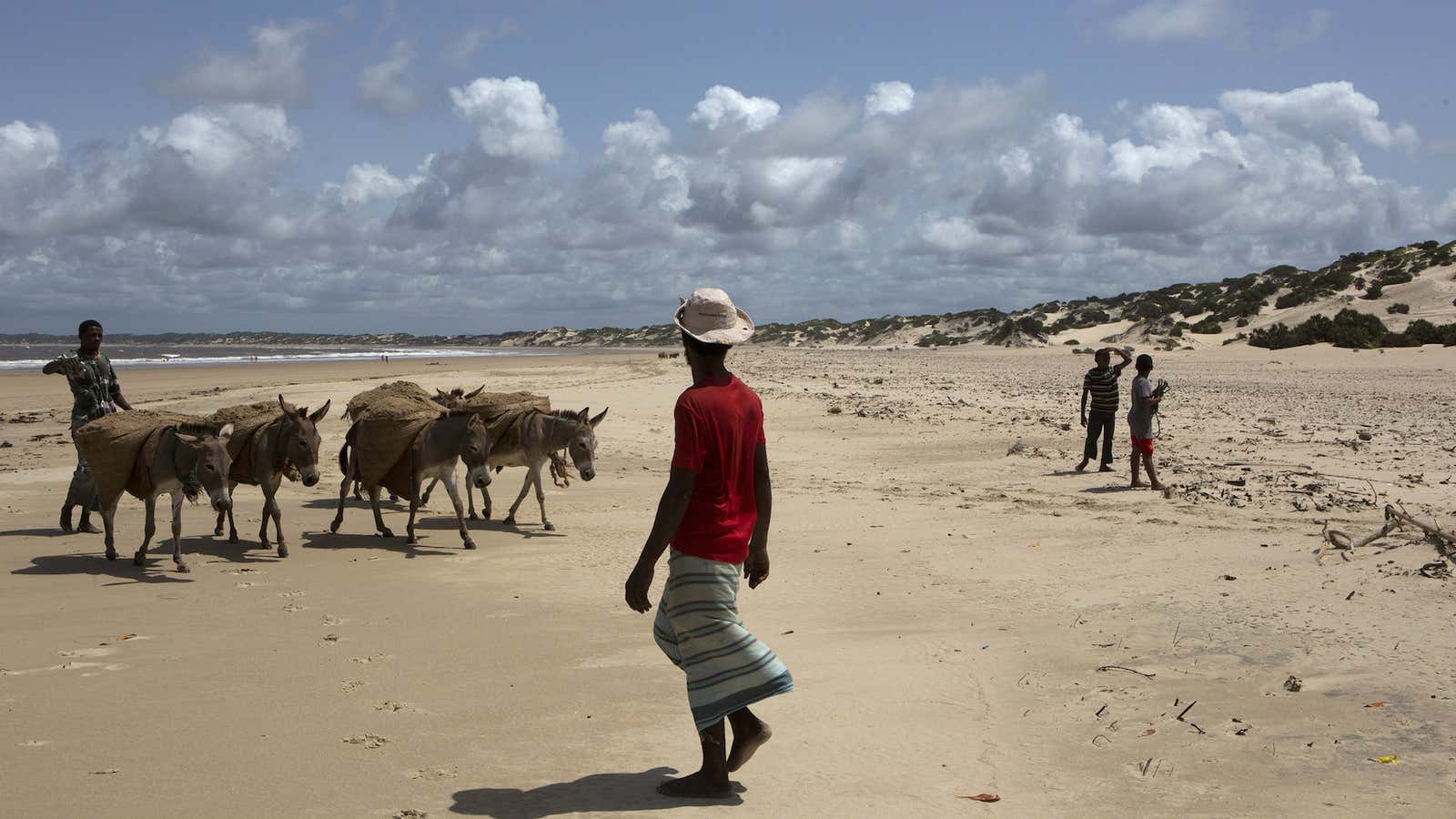Kenya is building East Africa’s first coal-fired power plant, a move that’s been criticized as backwards, unnecessary, and harmful to the health of the country’s people and environment. Now, the $2 billion project run by Amu Power is also being accused of taking jobs away from local Kenyans.
Forty percent of about 3,500 workers needed for construction will be foreign, mostly Chinese, according to a filing with the National Environment Management Authority, reported in local media this week. The rest of the jobs will go to locals.
That Chinese companies import labor from China rather than hire locally is a criticism echoed across Africa, but particularly strong in Kenya where youth unemployment is the highest in the region.
“A project that will bring all workers from China, save for a few hundred manual jobs,” one user wrote on Facebook in response to Amu Power’s filing. “All we will benefit from is the environmental degradation and health effects that will be with us for many generations,” he added.
The Chinese in Kenya have been accused of stealing local jobs from street side hawkers to tour guides as well as on infrastructure projects like this one.
But the number of Chinese workers in Kenya—temporary workers hired for projects by Chinese companies—has actually fallen to almost 4,000 at of the end of 2014, from 6,500 in 2011, according to data compiled by the China Africa Research Initiative at Johns Hopkins University.
A fair amount of Chinese companies employ locals. A report from the Sino Africa Centre for Excellence (SACE) found that almost 80% of 75 Chinese companies surveyed in 2014 employed Kenyans in full-time jobs.
Almost all part-time positions were filled by local staff, and over half of companies had a system in place to replace Chinese employees with Kenyans in order to save on costs, according to the survey. (Importing labor in Kenya is expensive—work permits cost up to $4,500.)
Chinese companies in Kenya have also created jobs—about 2,200 between 2003 and 2015, equivalent to 5.3% of total jobs created by foreign direct investment in Kenya during that period, according to a World Bank study this year. (China ranks fifth in job creation, after India, the United Kingdom, the United States, and Japan, according to the study.)
The bigger concern is whether Chinese companies are beginning to export a model that has caused mass pollution, environmental disasters, and millions of premature deaths in China.
Beijing has banned construction of new coal plants across most of the country for the next two years. Some analysts predict that after 2030, no new plants will be allowed. As China cuts down on coal plants, more companies like Power China may start looking for customers in Africa.
Power Construction Corporation, or Power China, has been contracted by Amu Power to build the Lamu coal plant, which has yet to begin construction. Supporters of the 1,050 megawatt plant, equivalent to 45% of the country’s current power capacity, say it will help lower the cost of electricity and bring power to the three quarters of the country that still lack access to power.
